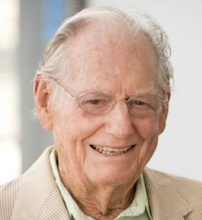A Quote by Robert Hughes
In the Somme valley, the back of language broke. It could no longer carry its former meanings. World War I changed the life of words and images in art, radically and forever. It brought our culture into the age of mass-produced, industrialized death. This, at first, was indescribable.
Related Quotes
Both of my grandfathers fought in the Second World War, and my great-grandfather died at the Somme in the First World War. I never truly believed that the War just finished and everyone was happy-clappy, brought out the bunting, and felt everything was okay again. That's definitely not my impression of the fall-out of war.
Remembering the loss of those Irishmen from all parts of the island who were sent to their deaths in the imperialist slaughter of the First World War is crucial to understanding our history. It is also important to recognise the special significance in which the Battle of the Somme and the First World War is held.
He should have known better because, early in his learnings under his brother Mahmoud, he had discovered that long human words (the longer the better) were easy, unmistakable, and rarely changed their meanings, but short words were slippery, unpredictable changing their meanings without any pattern. Or so he seemed to grok. Short human words were never like a short Martian word - such as grok which forever meant exactly the same thing. Short human words were like trying to lift water with a knife. And this had been a very short word.
Images detached from every aspect of life merge into a common stream, and the former unity of life is lost forever. Apprehended in a partial way, reality unfolds in a new generality as a pseudo-world apart, solely as an object of contemplation. The tendency toward the specialization of images-of-the-world finds its highest expression in the world of the autonomous image, where deceit deceives itself. The spectacle in its generality is a concrete inversion of life, and, as such the autonomous movement of non-life.
What has our culture lost in 1980 that the avant-garde had in 1890? Ebullience, idealism, confidence, the belief that there was plenty of territory to explore, and above all the sense that art, in the most disinterested and noble way, could find the necessary metaphors by which a radically changing culture could be explained to its inhabitants.
Images are no longer what they used to be. They can't be trusted any more. We all know that. You know that. When we grew up, images were telling stories and showing them. Now they're all into selling. They've changed under our very eyes. They don't even know how to do it anymore. They've plain forgotten. Images are selling out the world. And at a big discount.


































